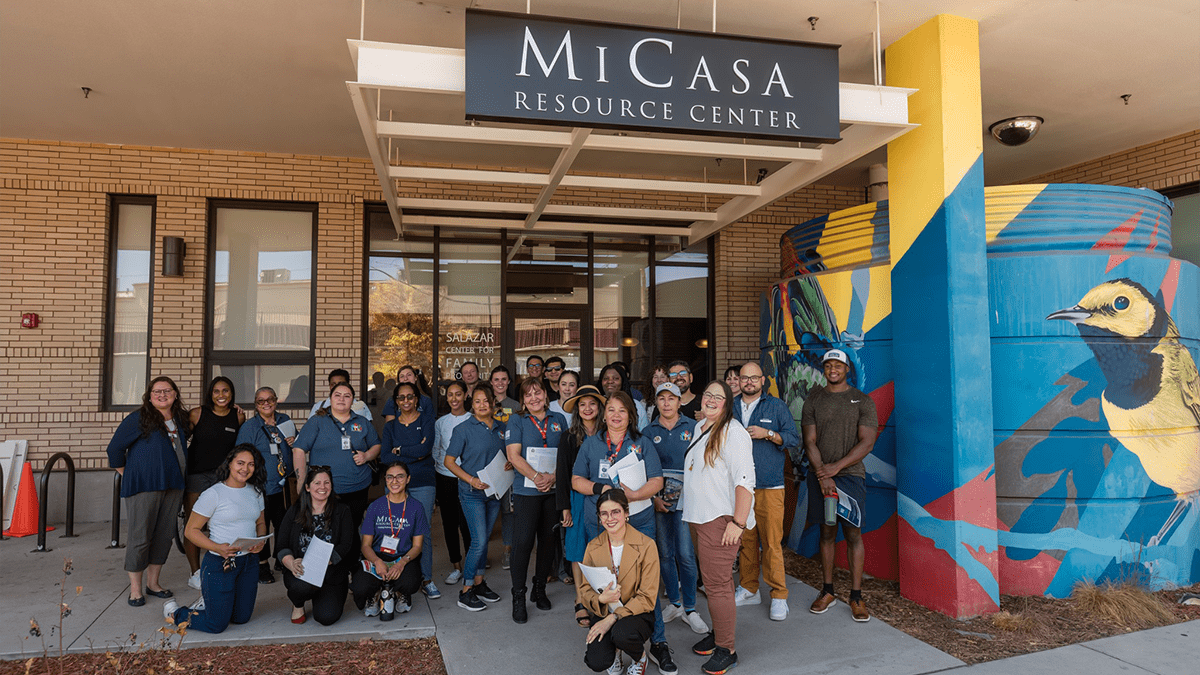A summary of the list of recommendations on the implementation of the OBBBA in Colorado regarding public benefits systems and work requirements.
Recent articles
CCLP testifies in support of Colorado’s AI Sunshine Act
Charles Brennan provided testimony in support of Senate Bill 25B-004, Increase Transparency for Algorithmic Systems, during the 2025 Special Session. CCLP is in support of SB25B-004.
Coloradans launch 2026 ballot push for graduated state income tax
New ballot measure proposals would cut taxes for 98 percent of Coloradans, raise revenue to address budget crisis.
CCLP statement on the executive order and Colorado’s endless budget catastrophe
Coloradans deserve better than the artificial budget crisis that led to today's crippling cuts by Governor Jared Polis.
Small business displacement and Business Navigators

Denver is one of the nation’s fastest growing cities and has been for the last several years. While its continued growth has led to new developments including high-rise apartments, shopping centers, and entertainment hotspots, the city’s growth also brings rising property values leading to the displacement of Denver’s culturally rich and historical corridors and residents.
When thinking about displacement pressures, residential displacement tends to be the first issue that comes to mind. However, commercial displacement of long-standing small businesses and entrepreneurs also serve as a great concern to culturally relevant[1] businesses in the wake of the city’s economic prosperity.
Small business displacement can be broken into three types – direct, indirect, and exclusionary.[2]
Direct displacement refers to cases when small businesses are forced to close due to immediate changes to the location, such as the building going up for sale, property redevelopment, or rezoning. Eminent domain can also result in direct displacement when a property must be redirected toward other purposes.
Indirect displacement occurs when landlords or new development projects lead to rising rents or property taxes, or when factors preventing customer business access cause businesses to relocate or close.
The third type of displacement is exclusionary, when business cannot afford to move into a gentrifying neighborhood.[3]
Zooming in: The Business Navigators Program
To help counteract such displacements, CCLP partnered with the City and County of Denver’s Office of Economic Development and Opportunities to administer a two-year program connecting Denver’s historically underinvested businesses with guides to programs, resources, and services available to them. These guides, known as “business navigators,” supported businesses in Denver’s most vulnerable neighborhoods, taking a holistic look at the needs of these small businesses and working to connect them to services available from the city, state and/or other navigators.
Business Navigators
This year’s Business Navigators included East Colfax Community Collective, Metro DEEP, Mi Casa Resource Center, Montbello Organizing Committee, Rocky Mountain MicroFinance Institute, The Fax Partnership, and Una Mano Una Esperanza. They provided services to some of Denver’s Neighborhood Equity & Stabilization (NEST) neighborhoods, such as East Colfax, Globeville, and Montbello.
Each of the Business Navigators provided a unique spread of business supports, helping them navigate various funding opportunities, programs, and services available in Denver. The program offered workshops and boot camp-style training on business planning, marketing, social media, and preparing businesses for grants and loans, and helping businesses adapt to the changing economic environment.
Business navigators also provided technical assistance to businesses, helping them pivot their operations. The program provided collaboration by partnering with local nonprofits, which extended the program’s reach and resources and gave more comprehensive support to small businesses.
Conclusion
Collectively, the Business Navigators served 745 businesses located in the Metro Denver area. The program positively impacted neighborhoods and council districts that encompass the city’s NEST priority neighborhoods by increasing business stability through targeted workshops and one-on-one guidance, enhancing access to funding opportunities and technical assistance, improving marketing strategies and social media presence for local businesses, but most importantly by meeting businesses exactly where they are and offering tailored assistance to meet their needs.
East Colfax Community Collective shared how the Business Navigators program enabled their organization to expand their services to the East Colfax community: “We have been able to dedicate more time to ensuring business owners are obtaining licenses to grow their businesses, applying for grants dedicated to the safety and upkeep of storefronts, providing legal counseling to help with landlord issues, and more, in whichever language business owners feel most comfortable understanding. By having more time to spend dedicated time with each business owner, we are able to work with them on specific issues proactively, ensuring East Colfax continues to be a place of diversity, culture, and thriving businesses.”
Small businesses serve as cultural cornerstones for neighborhoods. Changing demographics and spiking rent and property values pose a threat for some of Denver’s most historic and authentic corridors. Innovative and community-centered strategies like the Business Navigators program are the key to preserving the diversity and vibrancy of the Denver neighborhoods most susceptible to displacement.
For more information about the variety of strategies available to communities seeking to support small businesses at risk of displacement, be sure to check out the Small Business Anti-Displacement Toolkit and other resources at antidisplacement.org.
**********
[1] Businesses that reflect the culture, ethnicity, race, language, etc. of those that live in the area.
[2] Ryan. (2021, June 5). Toolkit – Small Business Anti-Displacement Network (SBAN). Antidisplacement.org. https://antidisplacement.org/toolkit/
[3] Gentrification is a process of neighborhood change in which higher-income residents move into historically disinvested, lower-income neighborhoods.
